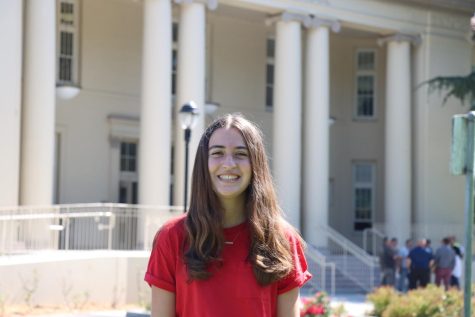Proposition 1
Proposition 1 would enshrine the right to have an abortion and use contraception in the California Constitution, leaving medical decisions up to the patient and provider.
The proposed constitutional amendment is as follows: “The state shall not deny or interfere with an individual’s reproductive freedom in their most intimate decisions, which includes their fundamental right to choose to have an abortion and their fundamental right to choose or refuse contraceptives.”
If the measure fails, state law would continue to protect reproductive rights, but these rights could be revoked in the future. U.S. Senators Dianne Feinstein and Alex Padilla support Proposition 1, along with Governor Gavin Newsom. Opponents argue that it will allow late-term abortions and raise taxes.
Proposition 28
Proposition 28 would provide increased funding for arts and music education in all K-12 public and charter schools. As of now, one in five California public schools have full-time art or music programs. This measure would send $1 billion in funding each year to increase access to these programs — equivalent to at least 1% of total state and local revenues that education agencies received in the last year.
Proposition 28 was initiated by citizens through signatures and would amend state law. Parents, teachers and children support this measure, while those who oppose it believe that local decisions should determine funding. The California Teachers Association and Los Angeles Unified School District superintendent Austin Beutner endorsed the Yes on 28 campaign.
Proposition 30
Proposition 30, which proposes an income tax to fund ride-share companies, is one of the most divisive measures on the California ballot, largely because of powerful stakeholders on each side of the aisle. Most Democrats in California are siding with the mammoth rideshare company Lyft to support the proposition, but Gov. Gavin Newsom has made an unlikely alliance with California Republicans in opposition to the proposition.
The bill would add a 1.75% tax to Californians who earn over $2 million. This money would primarily go toward electric vehicle infrastructure for ride-share companies, such as Lyft and Uber.
Newsom’s opposition to what many Democrats see as a bill intended to fight climate change is motivated largely by his alignment with the California Teachers Association (CTA). The CTA is opposed to Prop. 30, as the tax revenue would not go to the state general fund — which provides much of the funding for California schools and government programs.
Despite the CTA’s clear stance against Prop. 30, the San Mateo Union High School District Teachers Association (SMUHSDTA), has stayed silent on the issue.
Proposition 31
Proposition 31 would prohibit the sale of flavored tobacco products and decrease state tobacco tax revenues. A “yes” vote would approve Senate Bill 793, passed in August 2020 to fine retailers that sell flavored tobacco products. To reduce tobacco-related healthcare expenses, stores and vending machines would also be prohibited from selling most flavored tobacco products and flavor enhancers.
Governor Gavin Newsom and Lindsey Freitas, advocacy director for Campaign for Tobacco-Free Kids, support passing the proposition. However, some argue that it is already illegal to sell these products to people under 21, and believe that absolute prohibition is unnecessary. The Californians Against Prohibition is campaigning against the proposition and wishes to repeal Senate Bill 793.




